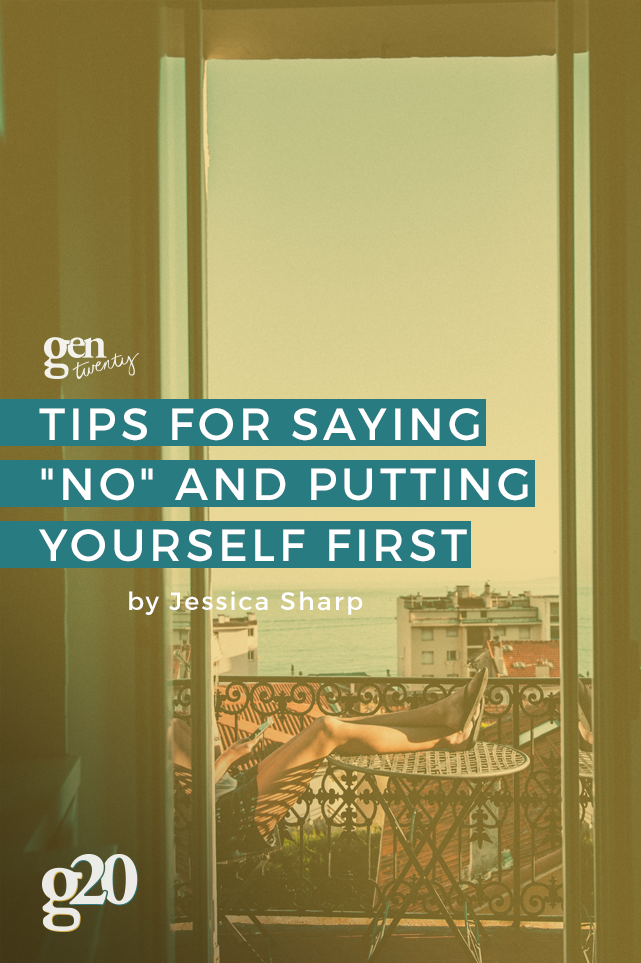
No is a complete sentence. I repeat, no is a complete sentence. In her book Year of Yes, Shonda Rhimes tells us that no is a complete sentence. Learn from her.
I think it l can be easy to feel like you have to say yes or do things to help other people, especially as women. It can be difficult to say no to people. Why? According to Psychology Today, we can blame it on the way girls have been raised:
As young children, girls are socialized to be nice and to be more in touch with their own and other people’s feelings than are boys. There’s nothing wrong with being nice. And there is definitely nothing wrong with being liked. Boys, on the other hand, are socialized to be less attuned to people’s feelings, and to win.
We want people to like us, or we don’t want to seem rude. Research supports this in personal lives and in work. Forbes says that women struggle to say no at work because they want to be seen as a hard worker or team player, or want to be liked by their colleagues. We want to say no for valid reasons, our intent is good. We want to be right and we want to be viewed as a value to the team, these are positive qualities. Unfortunately feeling like we can’t say no has consequences.
[clickToTweet tweet=”Feeling like we can’t say no has consequences.” quote=”Feeling like we can’t say no has consequences.”]
Why Saying “No” Matters
When we don’t say no when we should, a variety of negative things can happen:
- We can risk burnout. The GenTwenty team has written about this before, and BossedUp. Saying yes when you don’t want to or really can’t take on additional commitments can lead us to be overextended and feeling burnout.
- You can get resentful and it can begin to show in your interactions. There are times when I do things for people that I really don’t want to do, and I feel myself getting resentful and frustrated. Over time that can begin to color your interactions with the people you are frustrated with. This can be bad in your personal life but can be even worse at work.
- You may begin to get taken advantage of. I think this applies more to work, but if your colleagues begin to see that you will do things that they don’t want to do, you will get asked more. Before you know it, you may be making coffee runs and taking minutes in meetings.
In order for you to craft the life you want, you have to take control of it, which means feeling empowered to say no and putting yourself first. Am I advocating that you be selfish? Of course not. We are advocating that you give yourself what you need so that you can do what you want in your life.
[clickToTweet tweet=”In order for you to craft the life you want, you have to take control of it.” quote=”In order for you to craft the life you want, you have to take control of it.”]
How to Take Control of Your Life and Say “No”
Because we are all unique, there are a variety of ways that you can say no to people and advocate for what you want. Below I will give you some general tips that you can use, tweak or ignore. Whatever you decide to do, it just matters to us that you learn to say no and advocate for what you want.
- Use a string of words that include no until you get comfortable. Some examples are: “no, thank you for asking,” “no, I can’t do that right now,” “no, maybe next time,” “I’d rather not, but thanks.” There are a variety of things you can say depending on the situation, but using a few additional words may help you feel more empowered to say no. Some people will be comfortable saying “no as a complete sentence,” but others won’t; do what you are comfortable doing.
- Don’t apologize. Apologizing implies that you are wrong somehow, you aren’t. Saying no to something you don’t want to do or can’t do is completely okay. Apologizing will likely make you feel bad about it and apologizing makes the other person think you are wrong when you are not.
- Think about the opportunity cost. What will you be giving up by doing what you are being asked to do? It may be relaxing or doing something else for work, who knows. But think about what you would rather do instead of doing what is being asked of you. This can apply to work things or things in your personal life.
- Practice. They say practice makes perfect, well practice saying no so that when the stakes are high and it can be hard, saying no will be easier.
- Try to avoid people who ask, ask, ask but who don’t want to give things in return. Who are the people in your life who constantly ask you for things? Try to avoid them if you know you will want to tell them no.
Saying no can also be a part of your self-care routine and part of what you need to do to put yourself first. The GenTwenty family has already written extensively on the topic of self-care. Here are a few of our top posts:
- Why Self-Care Should be a Priority This Year
- Self-Care 101: Making Yourself a Priority Instead of an Afterthought
- 4 Ways to Build a Strong Foundation for Self Love
- How To Create Your Own Self-Care Routine (Plus a Free Workbook!)
We love to hear from our readers! Do you find it hard to say no? Why or why not? If you do, tell us what you will do to practice saying no in the future.
